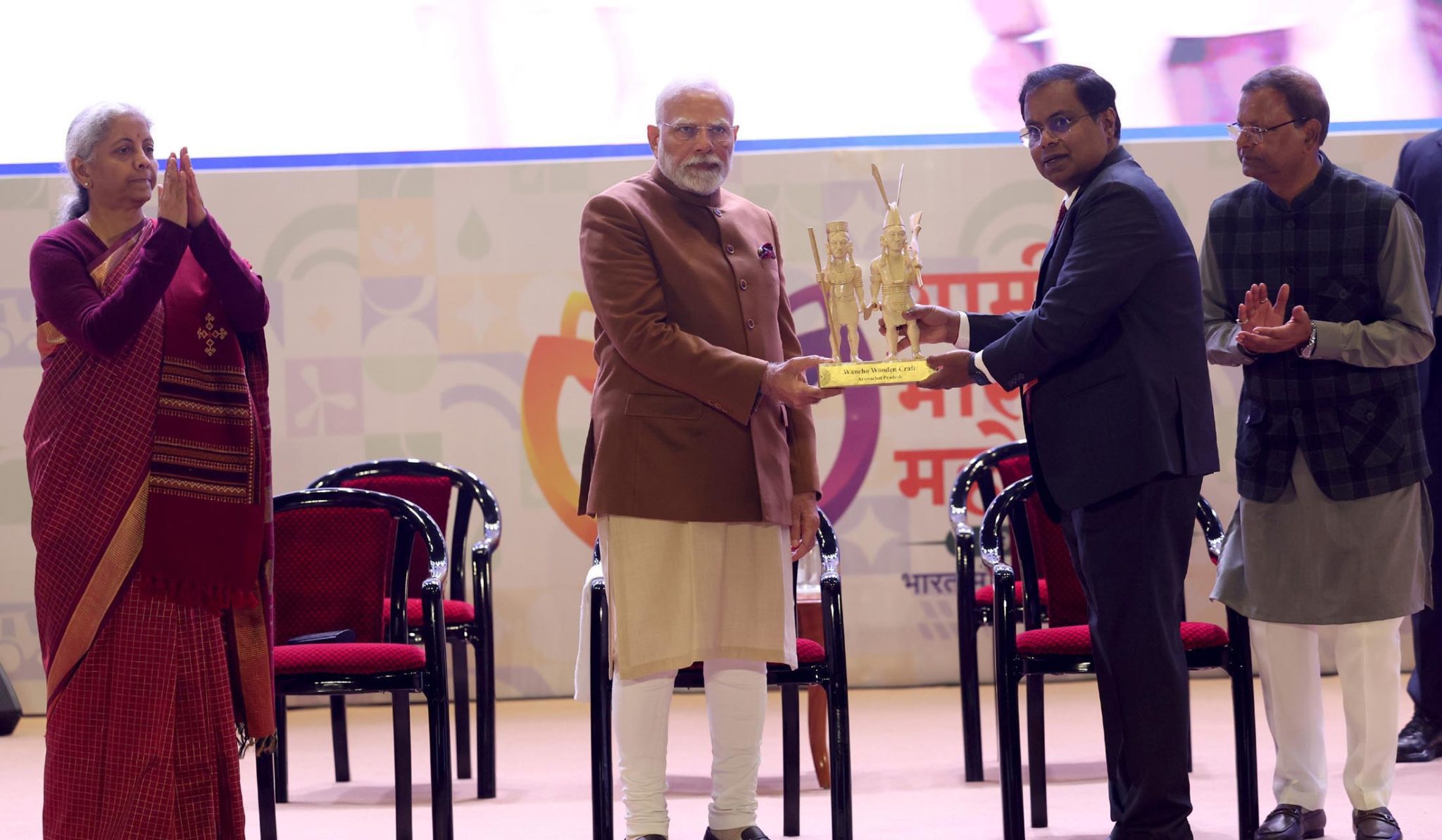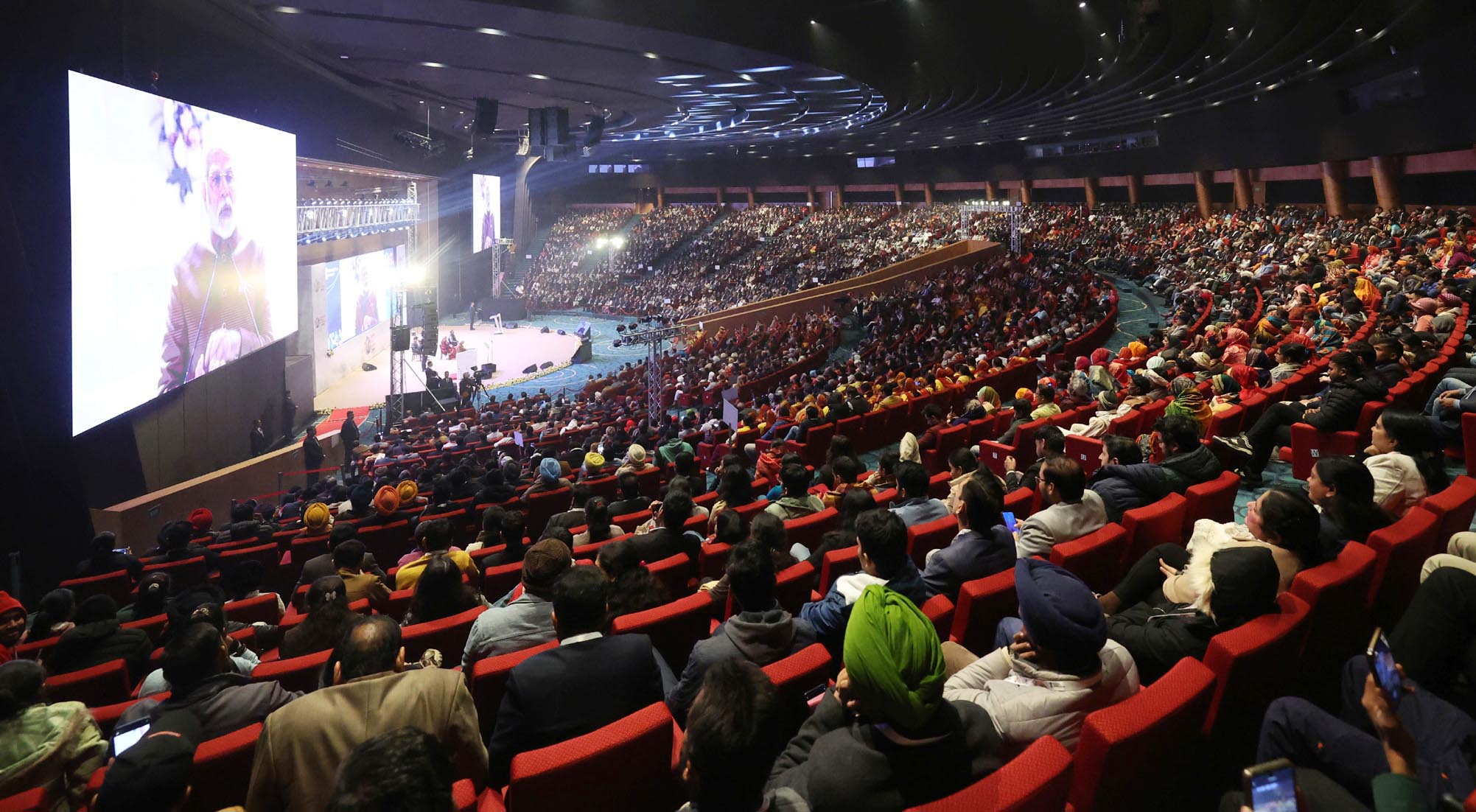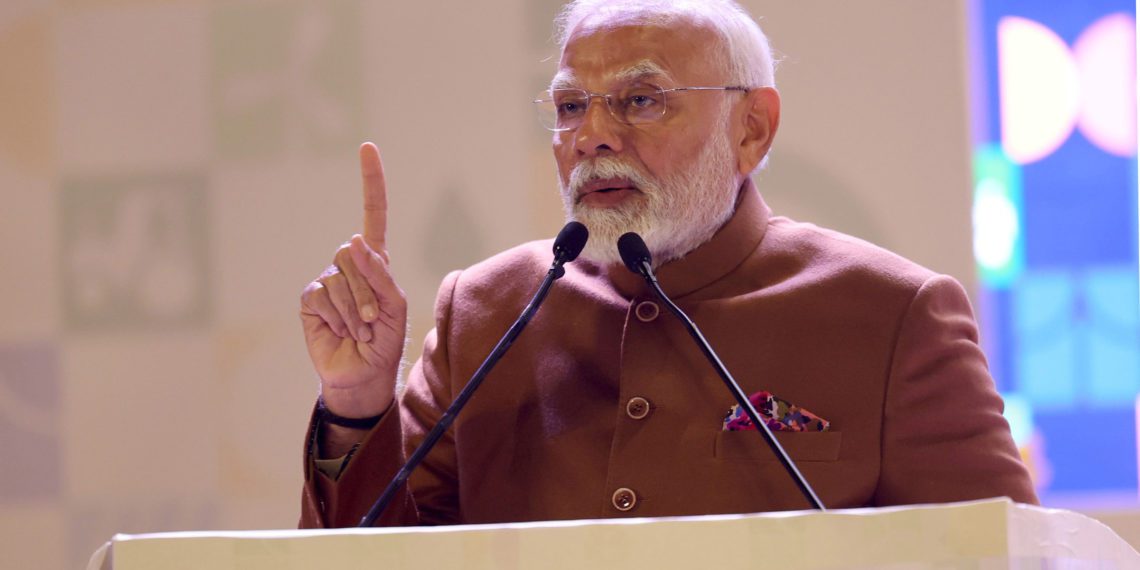Prime Minister Shri Narendra Modi inaugurated the Grameen Bharat Mahotsav 2025 at Bharat Mandapam, New Delhi, highlighting the theme “Building a Resilient Rural India for a Viksit Bharat 2024.” Addressing the gathering, the Prime Minister emphasized the transformative role of cooperatives in reshaping India’s rural landscape.
The Prime Minister called for the creation of five to six new cooperatives like Amul to expand nationwide reach and increase farmers’ incomes. Additionally, he stressed advancing natural farming as a mission and urged more farmers to adopt sustainable agricultural practices.
The Prime Minister credited NABARD’s leadership in rural transformation, from supporting self-help groups to advancing initiatives like Kisan Credit Cards. He stressed that NABARD would play a central role in achieving the nation’s rural development goals. He added that cooperatives have immense potential to provide economic stability and employment opportunities within villages, reducing outmigration and strengthening local economies. He also underlined the need to connect rural industries with national markets to ensure that villages become self-reliant hubs of production and innovation.
Modi highlighted the establishment of the Ministry of Cooperation in 2021 as a pivotal step in fostering cooperation-driven growth. He revealed that approximately 70,000 Primary Agricultural Credit Societies (PACS) are being computerized to ensure farmers receive better value for their products, directly strengthening the rural economy.
Modi also noted significant strides in agricultural credit and support for rural livelihoods. He mentioned the inclusion of livestock and fish farmers in the Kisan Credit Card scheme and the financial support provided to over 9,000 Farmer Producer Organizations (FPOs) across the country. Furthermore, he emphasized the consistent increase in the Minimum Support Price (MSP) for crops over the last decade to ensure better returns for farmers.


The Prime Minister highlighted the pivotal role of women in India’s rural economy and applauded the efforts of Bank Sakhis, Bima Sakhis, and Lakhpati Didis, women leaders in self-help groups who are spearheading rural revolutions.
More than 1.15 crore women in villages have become Lakhpati Didis, with plans to increase this number to 3 crore. Special schemes are being implemented to support women from marginalized communities. He emphasized the importance of linking self-help groups with micro and small industries (MSMEs) to boost rural entrepreneurship. Modi stressed the need for proper branding, packaging, and marketing of GI-tagged products to enhance their reach and profitability.
He emphasized the importance of increasing the number of Farmer Producer Organizations (FPOs) to empower farmers and ensure fair prices for their produce. Milk production, one of the most lucrative sectors for farmers, was also emphasized.
Concluding his address, the Prime Minister reiterated the government’s commitment to empowering rural communities and achieving sustainable development. He expressed confidence that initiatives like the PM Kisan Samman Nidhi, which has provided ?3 lakh crore to farmers, and cooperative-driven projects would drive India toward becoming a developed nation by 2047.
The Prime Minister’s speech underscored the potential of cooperatives as game-changers in India’s rural development journey, setting the tone for a resilient and prosperous future for rural India. He stressed that the path to a developed India runs through empowered and self-sufficient villages, which are the foundation of the nation’s economy and cultural heritage.






















































